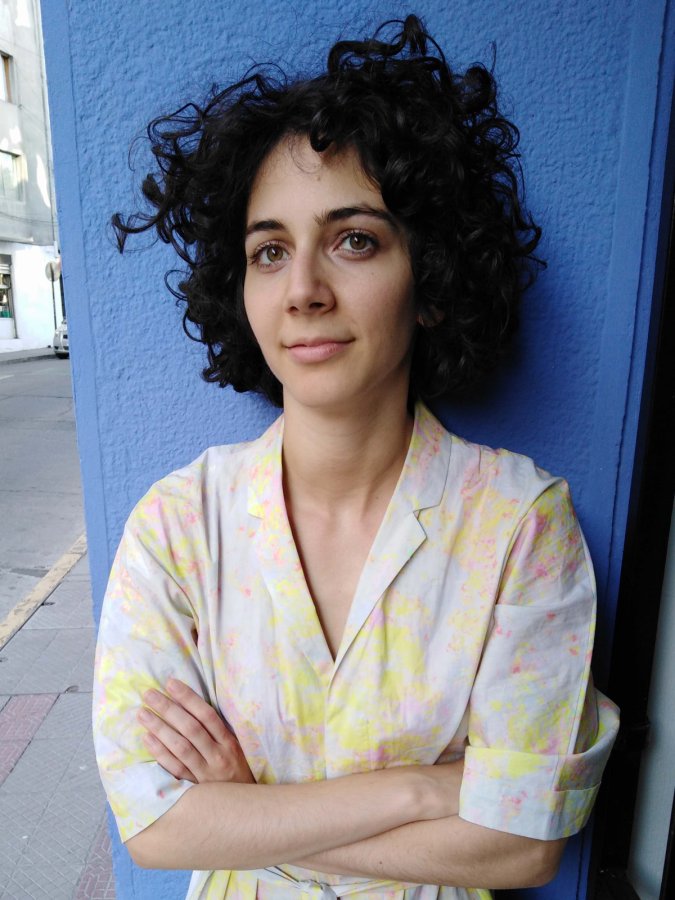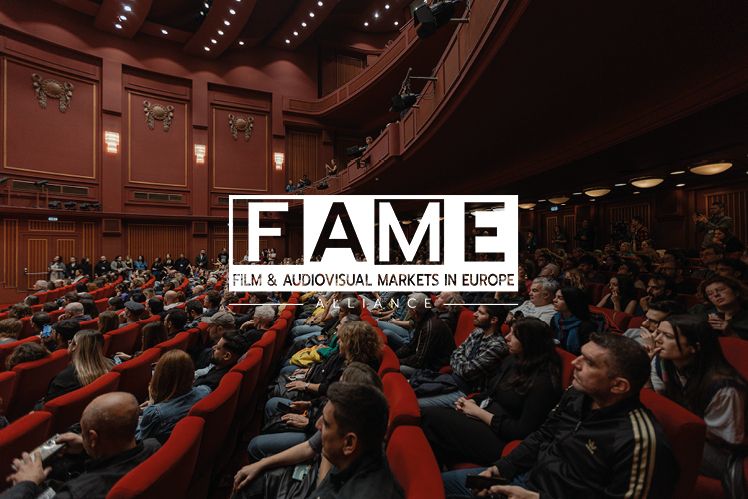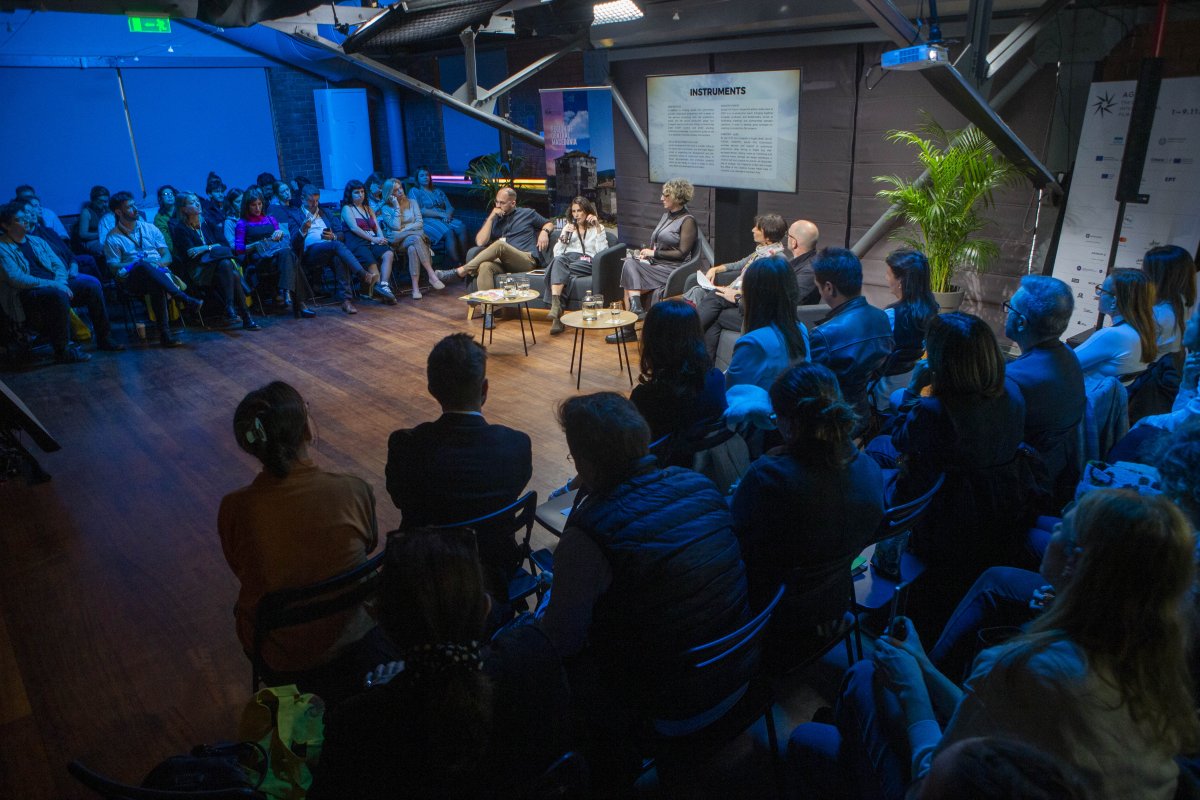On Wednesday, November 09, 2011 a press conference with Constantine Giannaris, director and festival jury member took place at the 52nd Thessaloniki International Film Festival. A comprehensive tribute to Constantine Giannaris is being held this year at the festival.
Artistic Director of the Festival, Mr. Dimitri Eipides stated: “I first came into contact with the work of Giannaris at Cannes, and I was ecstatic. Since then I remain a loyal fan”. He added: “Constantine Giannaris’ presence has made a very important contribution to Greek cinema up to now. He motivates the new generation of independent filmmakers, which believes that creating on screen is a basic form of human expression. Undoubtedly Giannaris is a capital for Greek cinema”.
Asked how he feels about the retrospective on his work, the artist replied: "Confused!". And he explained: "Every artist feels confused, because creation is or results from confusion. This festival tribute gives me an opportunity to do an internal review, and also a take stock of my work in relation to the audience. At first I was rather hesitant about the festival’s proposal, but then I got over it. It's nice to pull things out of 'trunks' and 'baggage' that you may have forgotten about and show them to the viewers”.
Looking at his work as a whole, the director stated that "someone’s obsessions are stable over time. Maybe the style, appearance, the wrapper changes, but the obsessions, phobias, stimuli ultimately remain unchanged. This is frightening, considering how we are predefined, but at the some time this fight with DNA is a struggle. If I could change my obsession I would do it gladly, but on the other hand, I can not imagine myself not making films. "
Speaking about his influences, he noted that "they come out of the osmosis of two traditions: that of the documentary, with its politicized point of view, and at the some time that of esthetics." According to him the most important moment in the film process is when the theme combines ideally with the aesthetic result. "The journey of a director is to find the next such moment. If you keep doing the same things, you stagnate. I am an ephemeral, casual man. Stability is nice, but the ephemeral has its good points”, said Constantine Giannaris.
For him, a film is not just a narrative experience, but also a visual one, which unfolds on the level of images. As he explained, when he was a kid, he wanted to be a painter or an architect. “The fact that I didn’t have the skills to become a painter hurts me, and I try to soften the pain though the film lens. In Greece we have always had grandiose narratives. Film as a visual art is very close to me”.
Then he noted that he plans to return to more personal forms because he wants to have absolute control, and he’s thinking of changing his subject matter: “I don’t want to be typecast as a director of the marginal or of immigration issues. Unfortunately, due to the situation all over Europe, there are many stimuli for a director. This may be very good for art, but not necessarily for societies themselves. Greece was until recently referred to as ‘little Greece’, the middle class paradise, without the class differences of other Balkan countries. In the end though, this difference of ours from other societies proved to be very fragile. In two years, we discovered how rotten the foundations of the last 40 years really were”.
One of the subjects that he finds stimulating is violence. “We have very recent and shocking stories of violence. It is the pleasure of violence that affects mainly young people coming from different social strata”. In his next project called Kalashnikov, which is participating in the Crossroads Co-Production Forum, he is working with the same production team he used in From the Edge of the City. “Kalashnikov is in a way an answer to From the Edge of the City, without the naivete of that time”.
He sees his films as “a page on which you can erase and add to again”. This happened in his latest film Man at Sea, which as he explained will go through editing changes after the Thessaloniki International Film Festival, mainly in the first half hour of the film so that the narrative flow is clearer”. Speaking about working with amateur actors in Man at Sea, he said: “They were little soldiers, they were totally involved, and they were amazingly dedicated to the film. There were people who finished working construction at 9 o’clock at night and then rehearsed until late”. At this point, the director made a special mention of the professional actors as well, particularly to Antonis Karystinos “for his dedication and amazing interpretation”.
When asked if film directing is a voyeuristic process he said: “The voyeur looks with a feeling of secret and perverse joy which cannot be admittedly pleasurable. He lives in a twilight of guilt. I don’t have any guilt about this pleasure. I like to observe out of the corner of my eye. The expressions and gestures of people get written on my ‘hard drive’ and at some point I pull them out and build them into a character. This is oxygen for a director”.
Finally, Constantine Giannaris spoke of the “cinematic spring” which is being noticed in our country’s production the last few years. “It’s very promising. People such as Koutras, Tsitos, Tsangari, Lanthimos, who were working years ago now mature much faster. Other young people will come along who are 20, 25, 30 years old” the director predicted.















